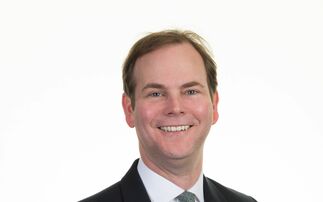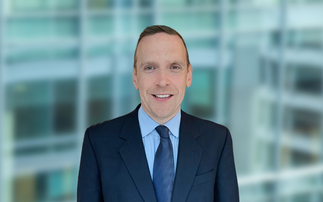The environment for modern careers has changed dramatically over the past few decades.
Many describe the current environment as volatile, uncertain, complex, and ambiguous (VUCA). In this VUCA environment, organisations assume little or no responsibility for helping to manage employees' careers. Meanwhile, professionals increasingly approach career planning from a total life perspective, putting emphasis on flexibility and personal development to remain both competitive and sane.
Often, the critical difference between successful and unsuccessful careers in the new work environment comes down to intentional, active, and effective career management. Your career is your responsibility, and it is up to you to take advantage of your opportunities and circumstances to further your career. A new guide from CFA Institute, Career Success: Navigating the New Work Environment, provides a practical model of career management designed to maximise passion for your work and minimise dissatisfaction in your career.
Define and manage your career
At its core, career management is a process by which you can (1) analyse and solve a career problem at a given point in time and (2) set goals and priorities for the future. It is a combination of problem solving, decision making, and planning.
Career problem solving follows a structured approach:
- identify the exact problem to be solved
- collect and collate data needed to analyse the problem
- analyse the data
- make decisions to solve the problem

Likewise, when you are planning your career, you should
- set realistic career goals for the future
- develop implementation strategies
- seek feedback and monitor progress towards your goal achievement over time

A model for career success
The decision-making and career-planning processes are useful in addressing specific challenges that may occur during your career and forming appropriate strategies to help you achieve your career goals. Throughout your career, situations and circumstances will change. Your personality will evolve. You will acquire new skills, qualities, and talents.
As you plan and advance your career, a practical and dynamic career management model can be used to help you achieve compatibility, or ‘fit', between you and your work environment.

1. Developing self-awareness: Explore and understand who you are as a person, what motivates you, what values drive your day-to-day conduct, what skills you possess as strengths, and what other lifestyle preferences you have.
Self-awareness helps you identify what motivates you in terms of career objectives and provides clarity on how you define success for yourself. People with a strong degree of self-awareness are better able to express clearly the value they can offer an organisation as an employee and leader.
2. Identifying your ideal work environment: Under what conditions are you most suited to thrive? This step helps you develop a better awareness of your preferences and suitability for a given work culture, including occupational choices, job opportunities, corporate cultures of potential employers, and management styles of prospective leaders.
Management styles of prospective managers should not be underestimated. It's been said that employees don't leave companies; they leave managers. Often, a disproportionate amount of satisfaction or dissatisfaction with your role comes from the relationship you have with your manager.
3. Making decisions and planning and assessing your career: Use compatibility, or fit, from the prior steps to make decisions in your career, set realistic goals for the future, and develop implementation strategies.
The fundamental principle of compatibility should guide your decision making throughout your career. Compatibility refers to a fit between individuals and their work environments. It may seem obvious that we would strive for fit in our careers; however, examples of ‘misfit' abound for many and contribute greatly to career dissatisfaction.
4. Measuring your impact: Proactively seek feedback on your performance from peers, leaders, and clients and monitor your progress over time.
It is important to reevaluate your efforts as your career progresses. The ultimate objective of career planning is to consistently enhance your employability and implement strategies so that you have impact at every stage of your career. The CFA Institute guide to Career Success: Navigating the New Work Environment, offers scenarios and activities to help you assess your own career goals, plus insights from investment luminaries such as Warren Buffet.
Own your career
In the new work environment, defining and managing your career is your responsibility. Understanding yourself and your environment forms the cornerstone of effective career management and compatibility.
In other words, choose:
- a profession that motivates you and is likely to become your passion over time
- a job, role, or function that leverages your natural strengths
- a manager whose values and management style suit you and who can become your mentor
- an employer whose corporate culture is compatible with your values
- to take considered risks that force you to grow and develop without compromising your fit with your professional environment
The career management model suggests that even in the increasingly VUCA environment modern professionals find themselves in, building a career and doing work that is enjoyable, creates value, and affects others in a positive manner can be perfectly synonymous.
This piece originally appeared in CFA Institute Career Resources, here.
Sponsored content from CFA Institute












